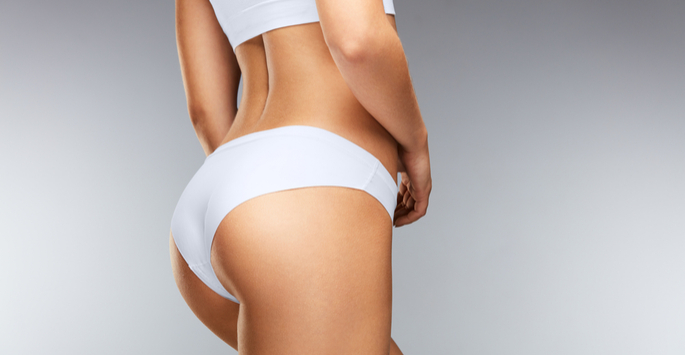Does Teeth Cleaning Cause Temporary Tooth Sensitivity?
- aesthatic clinic
.jpg/v1/fill/w_320,h_320/file.jpg)
- Oct 14, 2025
- 4 min read
Many people look forward to the fresh, smooth feeling after a professional dental cleaning. However, some may notice mild sensitivity to hot or cold drinks for a day or two afterward. This temporary reaction is quite normal and usually nothing to worry about. At the center of this topic lies Teeth Cleaning in Dubai, a professional service designed to promote long-term oral health and comfort while minimizing sensitivity through advanced care techniques.
Why Teeth Cleaning Might Cause Sensitivity
Professional dental cleaning removes plaque, tartar, and surface stains from your teeth using specialized tools. During this process, the protective film that naturally forms on your teeth is polished away, and exposed areas of enamel and gums may temporarily react to temperature or pressure changes.
The most common causes of short-term sensitivity after cleaning include:
Exposure of tooth roots due to mild gum recession.
Removal of tartar that was insulating sensitive areas.
Minor gum inflammation from deep cleaning below the gum line.
Slight enamel thinning caused by previous wear or brushing habits.
In most cases, this sensitivity fades within a few days as your teeth and gums adjust to their cleaner, healthier state.

How Long Does Sensitivity Last After Cleaning?
Plaque and tartar buildup are not just cosmetic concerns; they trap bacteria that can weaken enamel and inflame the gums. Over time, this buildup can lead to gum recession, which exposes the sensitive part of the tooth known as dentin. When tartar is removed during a cleaning, those areas may initially feel more sensitive because they are no longer covered by buildup.
However, this exposure is temporary and beneficial in the long run — it allows your gums to heal and your enamel to stay protected with proper oral care.
How Dental Professionals Minimize Discomfort
Modern dental cleanings are far gentler than in the past. Dentists and hygienists use advanced ultrasonic tools that remove tartar using vibration and water pressure, reducing irritation to the gums and teeth. These tools are precise and effective, making the process more comfortable even for those with sensitive teeth.
If a patient reports high sensitivity before cleaning, dentists often apply desensitizing gels or fluoride varnishes immediately after the procedure to seal open tubules in the enamel. This helps block nerve signals and reduces discomfort almost instantly.
How Long Does Sensitivity Last After Cleaning?
For most people, any sensitivity after a cleaning lasts between a few hours and two days. The duration depends on factors such as gum health, tartar buildup, and the depth of cleaning performed.
Those who undergo a standard cleaning may experience little to no discomfort, while patients receiving deep cleaning for gum disease might notice sensitivity for a few extra days. Consistent brushing with a soft toothbrush and using toothpaste for sensitive teeth usually helps speed up recovery.
Tips to Ease Sensitivity After Cleaning
If you experience mild tooth sensitivity after a cleaning, there are several easy ways to relieve it at home:
Use desensitizing toothpaste: Brands designed for sensitive teeth contain ingredients that block nerve pathways in dentin.
Avoid very hot or cold foods: Give your enamel a short break to recover from exposure.
Brush gently: Use a soft-bristled toothbrush and avoid aggressive brushing.
Rinse with fluoride mouthwash: This helps strengthen enamel and reduce further irritation.
Stay hydrated: Drinking plenty of water helps maintain saliva flow, which naturally protects enamel.
By following these steps, you can keep your mouth comfortable and reduce the likelihood of prolonged sensitivity.
Why Regular Teeth Cleaning Actually Prevents Sensitivity
While mild post-cleaning sensitivity can occur, skipping professional cleanings altogether can lead to much worse sensitivity in the long term. When plaque and tartar are left untreated, they irritate the gums and expose tooth roots — a major source of chronic discomfort.
Regular cleanings prevent these issues by keeping gums healthy and enamel strong. In time, you’ll find that sensitivity actually decreases as your teeth and gums remain in better condition.
What If Sensitivity Persists?
If your teeth remain sensitive beyond a few days, it’s best to consult your dentist. Persistent sensitivity could indicate other underlying issues, such as enamel erosion, cavities, or gum disease. In such cases, dentists may recommend additional treatments like fluoride varnishes, bonding, or protective sealants to shield exposed areas and strengthen enamel.
Fortunately, these conditions are easily managed with early attention and preventive care, helping you maintain long-term oral comfort.
Teeth Cleaning Dubai: Comfort and Care in Every Appointment
When it comes to professional cleanings, Teeth Cleaning Dubai services are recognized for their advanced technology and patient-friendly approach. Hygienists use gentle ultrasonic cleaning tools, soft polishing methods, and fluoride protection to ensure a soothing experience. Whether you have sensitive teeth or strong enamel, Dubai’s modern clinics are equipped to provide pain-free, effective care tailored to your needs.
Conclusion
It’s completely normal to experience slight tooth sensitivity after a dental cleaning — it’s simply your teeth adjusting to a cleaner, healthier state. The benefits of professional cleaning far outweigh this temporary sensation.








Comments